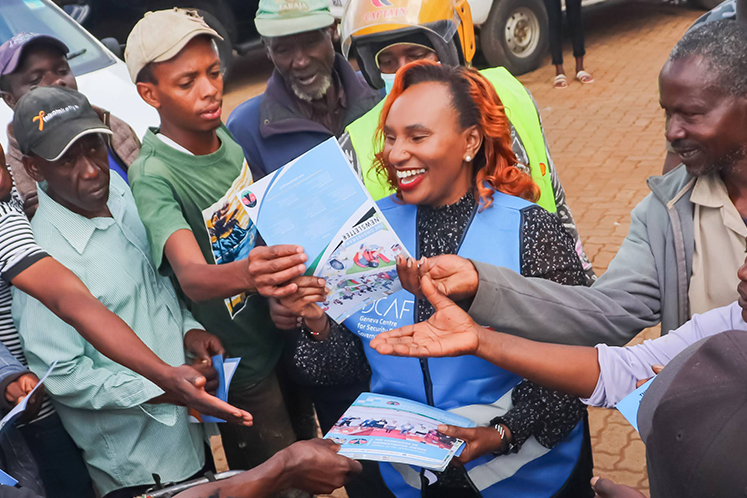Focus: Legal identity and access to security and justice in Kenya
In this 'Focus' series, we share stories from places where DCAF has helped to bring about meaningful and sustainable change. Our first example is Kenya, where we have supported efforts to address the lack of legal identity — a barrier that prevents many people from accessing security and justice services.
We have the right to access national identity cards, but in Northern Kenya, this is not the case.” - Halima Kahiye, Journalist, Wajir Community Radio
In Kenya, as of 2022, an estimated 100,000 people lacked legal identity documents, leaving them vulnerable to insecurity, crime, fraud, and exploitation.
Despite a nationwide investigation into statelessness in 2015 by the Commission on Administrative Justice – Office of the Ombudsman of Kenya (CAJ), the situation remains critical, especially in Northern and Upper Eastern Kenya. Rural, nomadic, and marginalized ethnic communities and people in borderland regions are the most affected.
In 2024, the CAJ enlisted DCAF’s support to conduct a public inquiry into the issue in Wajir County in northeastern Kenya, an area predominantly inhabited by ethnic Somali Muslims.
Over 300 community members participated in the week-long inquiry, the first of its kind.

Hon. Florence Kajuju, Chairperson of the Commission on Administrative Justice –
Office of the Ombudsman of Kenya, is distributing legal aid brochures to the local community.
Photo: Moses Sukali
Many complained about the vetting committees who do background checks for national ID cards. “They ask for 3,000 to 10,000 Shillings from every applicant. We are buying ID cards, basically and literally,” according to Hashim Mohamed, a Wajir community activist.
The inquiry also spoke to government officials, security agency representatives, and members of civil society groups.
It identified systemic barriers - from practical and logistical challenges to corruption and discrimination. Security organizations were accused of delaying the issuance of national identity cards to some ethno-religious groups.
“We have the right to access national identity cards,” said Halima Kahiye of Wajir Community Radio, “but in Northern Kenya, this is not the case.”
The mini-documentary below highlights the difficulties faced by the population in acquiring legal documents and the activities that DCAF and the Commission on Administrative Justice - Office of the Ombudsman put in place, such as conducting a public enquiry and setting up legal aid clinics, to help Kenyans in border communities access these documents.
With support from DCAF, the CAJ produced a report with recommendations to improve the structure, process, and oversight of the vetting committees. Not long after, President William Ruto announced plans to eliminate the committees. “Every Kenyan should be treated equally,” he said. “I will issue a policy to ensure we don’t discriminate on the basis of religion or region.”
Every Kenyan should be treated equally” - President William Ruto
In April 2024, the government introduced new guidelines for issuing national identity cards and abolished the use of vetting committees in many regions, including Wajir County.
State authorities later reported that the average wait time for identity documents in borderland counties dropped from many months, to just 21 days.
While much remains to be done, the introduction of the guidelines is a significant step toward ensuring that all Kenyans, regardless of ethnic or religious background, can enjoy their right to legal identity and the security and justice services that come with it.
 Share on Facebook
Share on Facebook Share on Linkedin
Share on Linkedin Share on Twitter
Share on Twitter